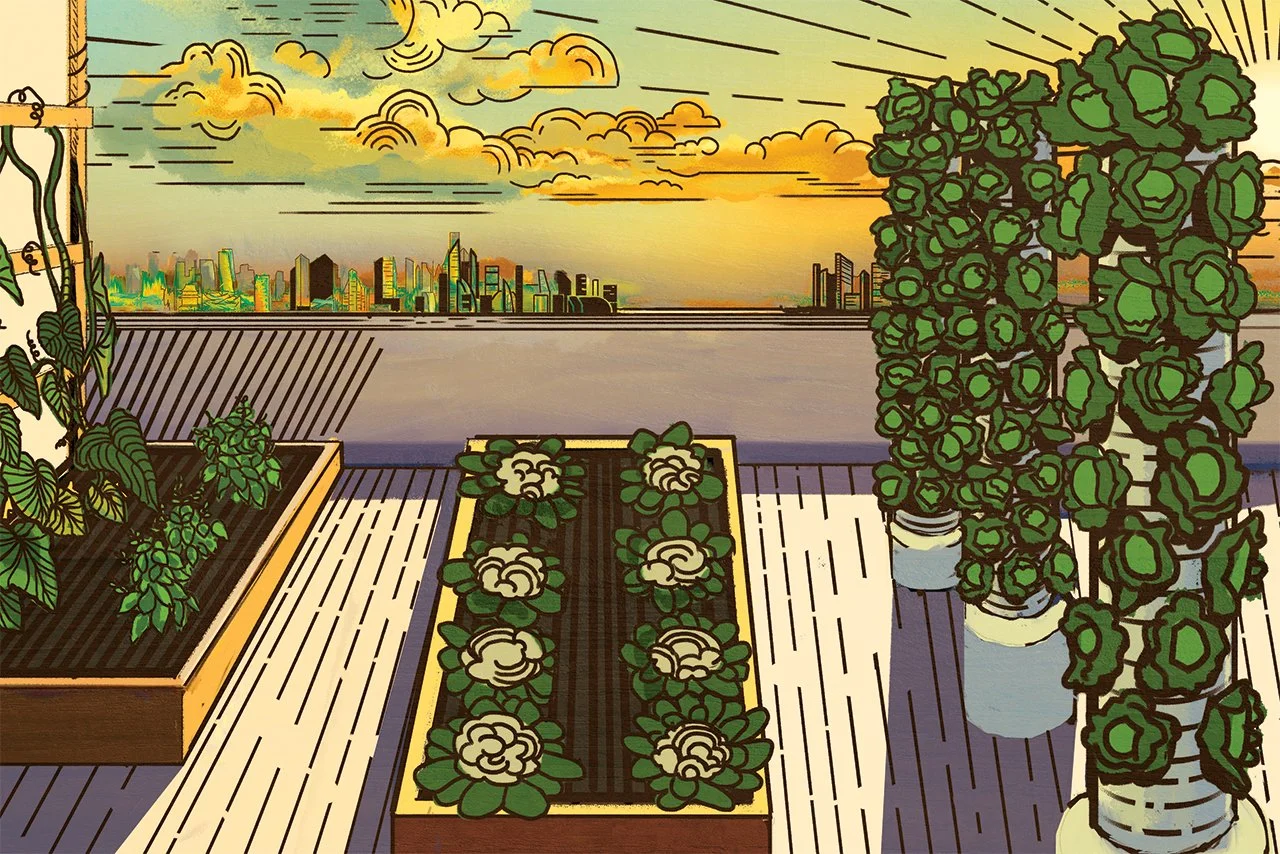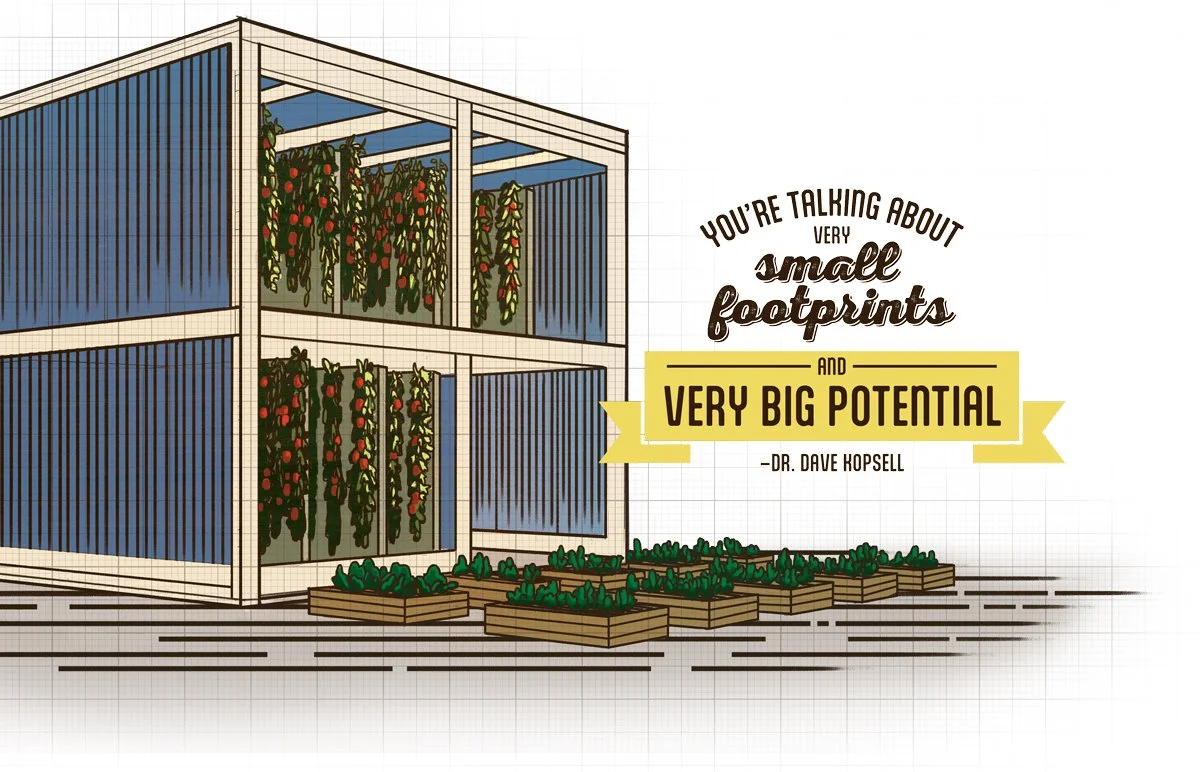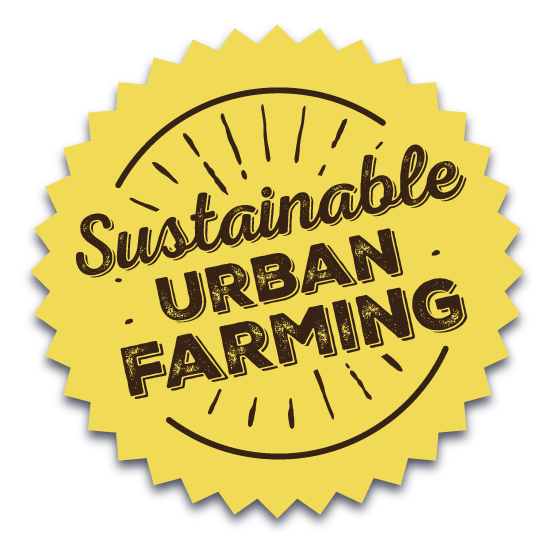Sustainable Urban Farming
Author: By Kate Arthur
September 16, 2024
It doesn’t take 500 acres and a machine shed to farm anymore. Not even soil. Crops are being grown in water, shipping containers, alongside skyscrapers and in vacant lots, using fewer natural resources and providing a perpetual harvest that doesn’t depend on Mother Nature.
Thinking small is a part of sustainable urban agriculture, which is getting big. Really big, said Dr. Dave Kopsell, horticulture professor in Illinois State University’s Department of Agriculture. With a $150,000 grant from the United States Department of Agriculture (USDA), he’s leading an interdisciplinary team in developing a new course: Sustainable Urban Agriculture. Plans are to offer it as a senior capstone course in 2025, making it Illinois State’s first urban agriculture course.
“Sustainable urban agriculture is farming that’s not the traditional rural large-scale field production,” Kopsell said. “It could be aquaponics, a freight farm, vertical farming. It’s growing plants for food production where you wouldn’t normally associate them being grown, growing food where the people are.”
As project director for the grant, Kopsell is developing the course with co-project directors Dr. Liangcheng Yang, associate professor of environmental health and sustainability, and Dr. Maria Boerngen, associate professor of agribusiness specializing in farm management and community marketing. The course is designed to provide training and experience for careers supporting or engaging in urban agriculture, which includes community gardens, rooftop farms, hydroponic facilities, and vertical production where crops may be grown in warehouses or along skyscrapers.
What makes this course unique is that students will get real-world experience in planning, organizing, maintaining, and harvesting, urban farms. They’ll also participate in service-learning projects, from supporting food pantries to teaching K-12 students about sustainability.
“There are a lot of programs that have urban ag,” Kopsell said. “But being able to tie in our expertise, and hands-on experiential learning is unique. With civic engagement, it takes this one step further. That’s what sets us apart.”
Partners for the course include the Illinois State University Farm-Lexington, the Office of Sustainability, Center for Civic Engagement, the food studies minor, area schools, Heartland Community College, the Ecology Action Center, the Illinois Specialty Crops Growers Association and Illinois Farm Bureau, Illinois Extension, and the Town of Normal Refuge Food Forest.
Numbers alone make the case for adding a new course like this one. According to the USDA’s most recent survey, there were 1.89 million U.S. farms still viable in 2023, a number that’s shrunk by 7 percent from the 2.04 million farms accounted for in the department’s 2017 Census of Agriculture. In addition, acres of land on farms continue to trend downward with 879 million acres in 2023, compared to 900 million acres in 2017.
With fewer people growing up on farms, sustainable farming is another path into agriculture, Kopsell said. Growers can partner with a community, church, or school, using vacant land for production and providing an oasis in food deserts. Ingredients that might be difficult to find, such as root vegetables native to African countries, could also be produced.
“The cool thing about urban farming is there’s such a variety of marketing options,” Kopsell said. “You can grow for profit or to donate. You can grow for wholesale, retail, local restaurants, schools, hospitals, or nursing homes. You’re talking about very small footprints and very big potential. You’re going to be able to do so much more than a traditional farm.”
Production facilities for the course include a Freight Farm, a 350-square-foot shipping container that will serve as a controlled environment greenhouse. When the Freight Farm is installed, it will be capable of growing the same amount of leafy greens as 1.5 to 2 acres, Kopsell said. Plans are to sell the produce to Campus Dining.
“It’s amazing that you can have all that production right here,” he said.
The timing is right, Kopsell said, as sustainable urban agriculture rapidly expands across the country, with a demand for a highly trained workforce. He and Yang hope to see students from majors other than agriculture and health sciences, possibly food and nutrition, sociology, and business.
“We’re trying to offer a well-rounded horticulture curriculum for those with varied interests,” Kopsell said.
Yang is an agricultural and environmental engineer and head of the Anaerobic Digestion Laboratory on campus. Waste management and energy production are his areas of expertise. He’ll teach students how an urban farm can turn waste into bioenergy. The anaerobic digester on the University Farm converts organic waste into biogas, which can be used for electricity, hot water, and transportation.
Kopsell said that recycling nutrients on a farm is a big part of sustainable agriculture.
“We’re recycling nutrients back to the next crop,” he said. “That methane that just evaporates can be captured and used in recyclable ways. It’s financially sustainable as well. You’re not always purchasing fertilizers; you’re recycling that as well.”
Yang emphasized the importance of having service learning embedded into the course, as some nonprofit operations depend on volunteer labor.
“Community engagement is very important for urban agriculture,” he said. “A lot of urban farms are looking for volunteers. Social connections and community engagement mean a lot to the success of these programs.”
Urban agriculture is becoming a social movement. There were 29,000 community gardens in the 100 largest U.S. cities in 2018, an increase of 44 percent since 2012, according to a Trust for Public Lands 2018 report. The employment outlook is good, with the USDA estimating there were 2.1 million jobs related to agriculture or food sectors in 2021, representing 10.5 percent of U.S. employment. Illinois State’s Department of Agriculture has a 99 percent placement rate among graduates, with 400 students enrolled in agriculture programs.
“There’s a lot of people making a great living out of urban farming,” Kopsell said. “And in this course, there’s service learning, civic engagement, energy recycling and sustainability, and the financial side of






